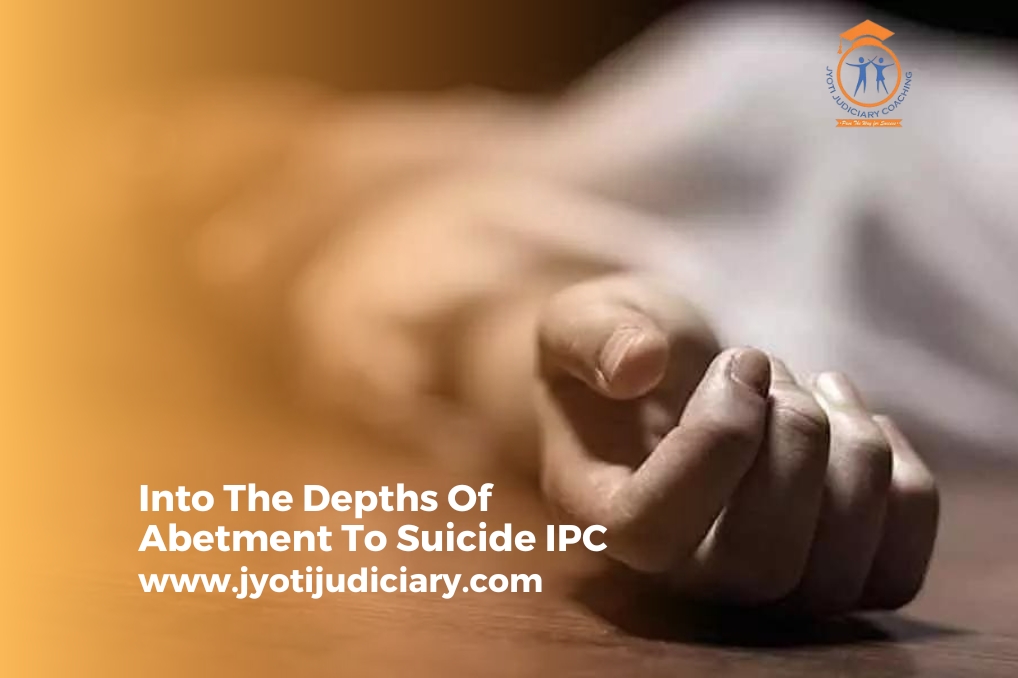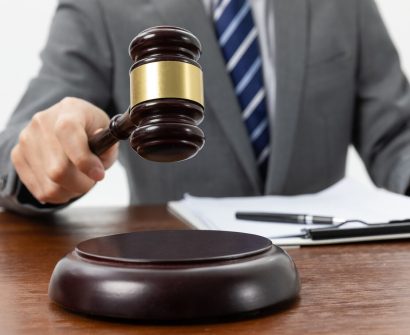
Suicide, also referred to as self-annihilation, is a special kind of crime where the accused and the sufferer are the same person. Regulations concerning this violation are included in the Indian Penal Code of 1860, which also governs future offense commissions and punishment.
Section 306 and Section 309 of the Indian Penal Code deal with the punishments for trying to commit suicide and helping someone else commit suicide, respectively.
Abetment to Suicide Meaning
- As per the abetment to suicide meaning, it is the act of actively or directly pushing a deceased person toward suicide when they are left with no alternative but to do it.
- The accused’s actions must also show that he intended to place the dead in a situation where he would be forced to commit suicide.
Abetment to Suicide IPC
According to Section 306 IPC, inciting someone else to commit suicide is punishable by up to 10 years in prison and a fine. Aiding and abetment to suicide attempts is prohibited.
An individual is deemed to have contributed to a suicide attempt when:
- He may be the one who pushes someone to terminate their own life, or
- He might be complicit in a plot to force someone to commit suicide, or
- He may deliberately help the victim end their life by doing something that would have been expected of him.
Legal Consequences of Abetment: Punishment
- It stipulates that the maximum penalty for anyone attempting suicide or taking any action that might result in this offense being committed is one year in simple jail, a fine, or both.
Abetment to Suicide: Important Ingredients
The Gujarat High Court determined what constitutes aiding and abetment to suicide in the State of Gujarat v Raval Shankerchand case. The following are the important ingredients of aiding suicide:
- There must be an abetment;
- The act of abetment must be criminal, or it must be an act that would be illegal if performed by someone who is legally entitled to do so with the same knowledge or intent as the abettor.
- The Mens Rea, or guilty mind.
Using a Suicide Note as “Evidence”
- Suicide notes are essentially made by someone who allegedly commits themselves and explains why they did it.
- Sections 306 and 107 of the Indian Penal Code, which accuses others of aiding and abetting suicide, may rely heavily on them as proof.
- A video, audio recording, or handwritten letter intended for suicide can all be used.
- A suicide note could include an appeal for pardon or claims that the writer pushed the victim to end their life.
In the case of Harbhajan Sandhu v State of Punjab, the Punjab-Haryana High Court ruled that a person is not guilty of aiding and abetting suicide simply because their name shows up on a suicide note. Section 306 requires all requirements to be fulfilled.
Suicide Encouragement Law India
- The existence of Section 309 of the Indian Penal Code is not only absurd and offensive, but it also negatively impacts the people in the community for whose benefit the law is meant to be written.
- Because of this legal provision, individuals in need of mental health care who are motivated to take their own life are discouraged from seeking help for fear of legal repercussions.
- The punitive hypothesis has no bearing on the suicide attempt as they do not inflict harm to others. In conclusion, trying to end one’s life cannot and ought not to be considered a crime. It is neither carried out by someone who intends to harm others nor is it used by someone who has criminal intent. It’s challenging to define suicide and attempted suicide.
- A conduct that is difficult to define can never be punished. People attempt suicide for reasons they cannot control. They require compassion, nurturing, affection, and care.
Abetment to Suicide IPC: Exemptions
- Demonstrating the accused’s earnest belief that their actions did not endanger life.
- Considering the accused’s mental condition at that time, including any insanity or diminished mental ability.
- Proving that there was no knowledge of the victim’s suicidal thoughts or criminal intent.
- Coercion or duress evidence is that the accused was compelled or pressured into assisting and abetting.
Abetment IPC: Case Laws
- The Apex Court held in M. Mohan v State that there must be a clear and direct link between the accused’s acts and their suicide deed. If there is no relationship, it cannot be established that the accused knowingly supported or helped with the suicide. Mild threats to drag the family into illogical and fake legal processes cannot be regarded as incitement. Thus, openly suggesting or endorsing the commission of an offense is the definition of aiding and abetting.
- The Honourable Supreme Court held in the Daxaben v State of Gujarat case that encouraging suicide is a grave, serious, and non-compoundable offense that cannot be made right with a straightforward settlement.
- The Delhi High Court ruled in Reena v NCT of Delhi that the accused could not be held guilty of aiding and abetting suicide if the deceased individual appeared to have a weak character and was unable to handle life’s ups and downs.
- The Honourable Supreme Court held in Mariano Anto Bruno v Inspector of Police that an offense cannot be punished under Section 306 of the IPC unless there was Criminal abetment in suicide cases, a clear Mens rea and a direct act of incitement or abetment that led the deceased to commit suicide.
The act of supporting, encouraging, or urging a victim as they commit suicide is known as suicide abetting. Abetment is found to be among the harshest and most serious crimes. Only once all prerequisites have been satisfied may the prosecution construct a case of abetment of suicide under Section 306 of the IPC.
Abetment To Suicide IPC FAQs
What is the meaning of abetment of suicide?
It is important to remember that section 107 of the IPC defines “abetment.” The Court clarified that the accused had to have purposefully pushed and encouraged the individual to commit suicide in order for the first portion of Section 107 to apply.
What are the essentials of abetment of suicide?
The “essential ingredients” for an offense to be considered abetment of suicide are defined by the Supreme Court in some cases: there must be an allegation of a direct or indirect act of incitement to commit an offense against suicide.
Is 306 IPC bailable or not?
Since the offense under Section 306 is both cognizable and non-bailable, the accused may be taken into custody by the police without a warrant.
What is the maximum punishment for abetment to suicide?
If an individual commits suicide, anyone who helps them do so faces punishment that includes both types of imprisonment for a maximum of ten years as well as a fine.
What is a presumption of abetment of suicide?
The Indian Evidence Act’s Section 113A creates the presumption that a husband and in-laws assisted a woman who committed suicide within seven years of marriage after suffering abuse.
Can IPC 306 be withdrawn?
The Supreme Court noted that a settlement under Section 482 CrPC cannot be used to dismiss an FIR under Section 306 IPC (abetment of suicide).
Can IPC 306 be quashed?
The Karnataka High Court has dismissed the prosecution brought under section 306 IPC against a couple who were accused of encouraging their nephew’s suicide by threatening him over a property dispute.
Jyoti Judiciary Coaching, India’s Finest educational Platform, was established to give students the best education available for law entrance exams including the CLAT, AILET, and numerous state judiciary exams. Come enroll now with Jyoti Judiciary!
Read our latest blog: Insanity under IPC
For any latest news, legal topics, judiciary exams notifications, patterns, etc watch Jyoti Judiciary’s YouTube channel for legal videos for any updates at https://youtube.com/@jyotijudiciarycoaching4852?si=2cwubh9d2A9urwJf









